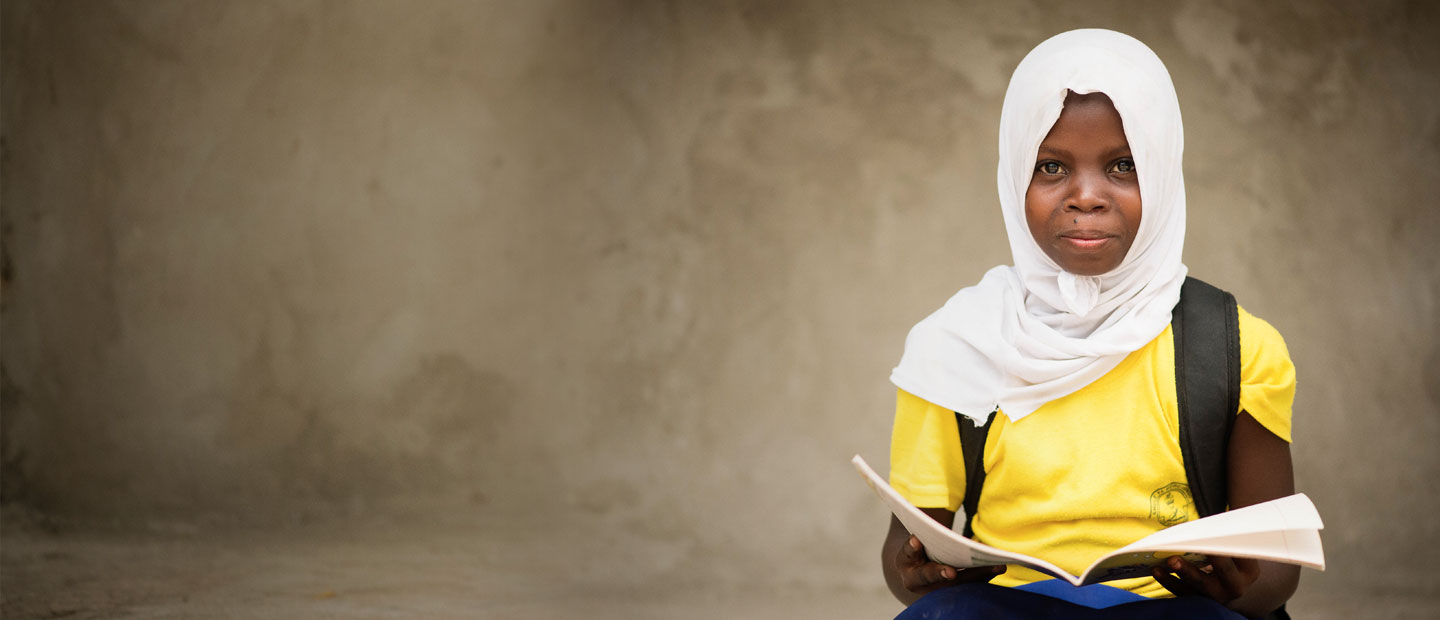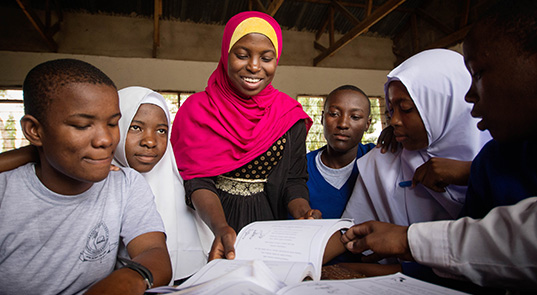
REAL Centre research reveals 'what works' in education

A new policy paper released by the Research for Equitable Access and Learning (REAL) Centre at the University of Cambridge, using CAMFED data, shows the impressive impact of raising learning for marginalized girls in Tanzania.
The research has emerged just days before Presidents Macky Sall of Senegal and Emmanuel Macron of France convene with global leaders in Dakar for The Global Partnership for Education (GPE) Financing Conference “An Investment in the Future” (1-2 February).
In terms of cost-effectiveness, CAMFED’s program in Tanzania fares well on average compared with other similar education interventions. Taking into account that CAMFED’s program is focused on the most marginalized girls, this result is all the more impressive.
Professor Pauline Rose, Director of the REAL Centre
The REAL Centre’s cost-effectiveness analysis finds that, for all children supported through CAMFED’s program, the impact is equivalent to an extra 1.7 years of schooling per $100 spent. This increases to an impact equivalent of an extra 2 years of schooling per $100 spent, when explicitly taking equity considerations into account.
Key messages in the report include that:
- Whilst it may cost more to reach the most marginalized children, the impact per dollar spent provides greater value for money.
- CAMFED’s program has been able to attain similar cost effectiveness outcomes to ones that have not included the aim of reaching the most marginalized.
- Inclusive education systems will function for everyone if they function for the most marginalized.
CAMFED’s program, supported by the Department for International Development, focuses on secondary schooling for girls from underserved rural communities in Tanzania. In addition to financial support, it offers learning materials, life skills resources, mentoring through young women acting as ‘Learner Guides’ as well as psycho-social and other forms of support through school-community engagement.
CAMFED’s interventions are aimed at both increasing marginalized girls’ chances of staying in secondary school, and improving their learning. This holistic approach is shown to improve learning outcomes by an impact equivalent to 1.7 extra years of schooling (for every $100 spent), and to significantly lower drop-out rates.

Learner Guides like CAMFED alumna Zuhura in Tanzania use their own experience of marginalization to help girls succeed in school and beyond.
CAMFED’s multidimensional model may initially incur higher costs; however, overall it provides greater value for money. In implementing it, there are aspects that target the needs of the most marginalized, and others that benefit all students in the schools supported.
The research concludes that by addressing the needs of the marginalized, programs such as CAMFED’s can be seen to address the needs of all: inclusive education systems will function for everyone if they function for the most marginalized.
Read the full REAL Centre policy paper “Cost effectiveness with equity“
On 2 February 2018, in her article Hundreds of millions of children in school but not learning, published ahead of the GPE financing conference in Dakar, the Guardian’s Kate Hodal interviewed Lucy Lake and featured the REAL Centre research on targeted mechanisms to reach the most marginalized girls.
On 30 January 2018, Lucy Lake and Pauline Rose joined Sinikiwe Makove, CAMFED’s Head of Programs in Zimbabwe, on a panel discussion moderated by the BBC’s Sean Coughlan, entitled, “Reaching the most marginalized through education in Africa” — part of the Yidan Prize Conference at Jesus College, Cambridge.
On 12 December 2016, CAMFED published the results from its education intervention in Tanzania and Zimbabwe funded under DFID Girls’ Education Challenge, showing an unprecedented uplift in learning outcomes among marginalized girls.
